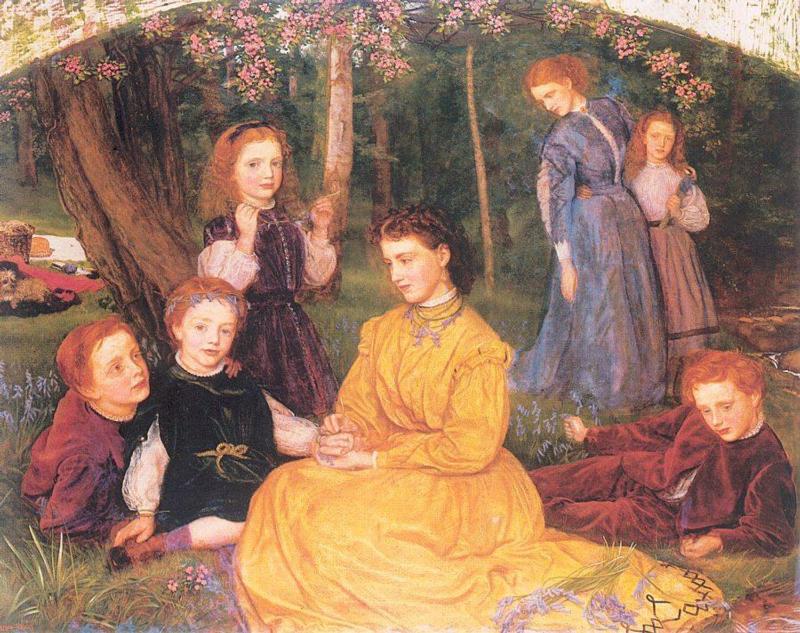 Hughes used a picnic as a theme for a family portrait of the Pattinson family. The title he gave was A Birthday Picnic – Portraits of the children of William and Anne Pattinson of Felling, near Gateshead. A red table with food in the left background, but it is...
Hughes used a picnic as a theme for a family portrait of the Pattinson family. The title he gave was A Birthday Picnic – Portraits of the children of William and Anne Pattinson of Felling, near Gateshead. A red table with food in the left background, but it is...
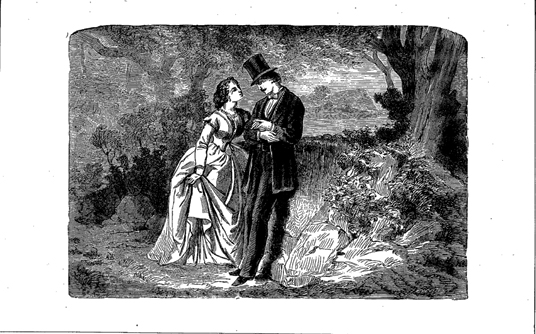 Zola’s Madeleine Férat is dedicated to Édouard Manet. Defying the critical mainstream, Zola accepted Manet’s visual realism and his frank sensualism of Le déjeuner sur l’herbe and Olympia, which Zola defended against adverse criticism. Zola’s...
Zola’s Madeleine Férat is dedicated to Édouard Manet. Defying the critical mainstream, Zola accepted Manet’s visual realism and his frank sensualism of Le déjeuner sur l’herbe and Olympia, which Zola defended against adverse criticism. Zola’s...
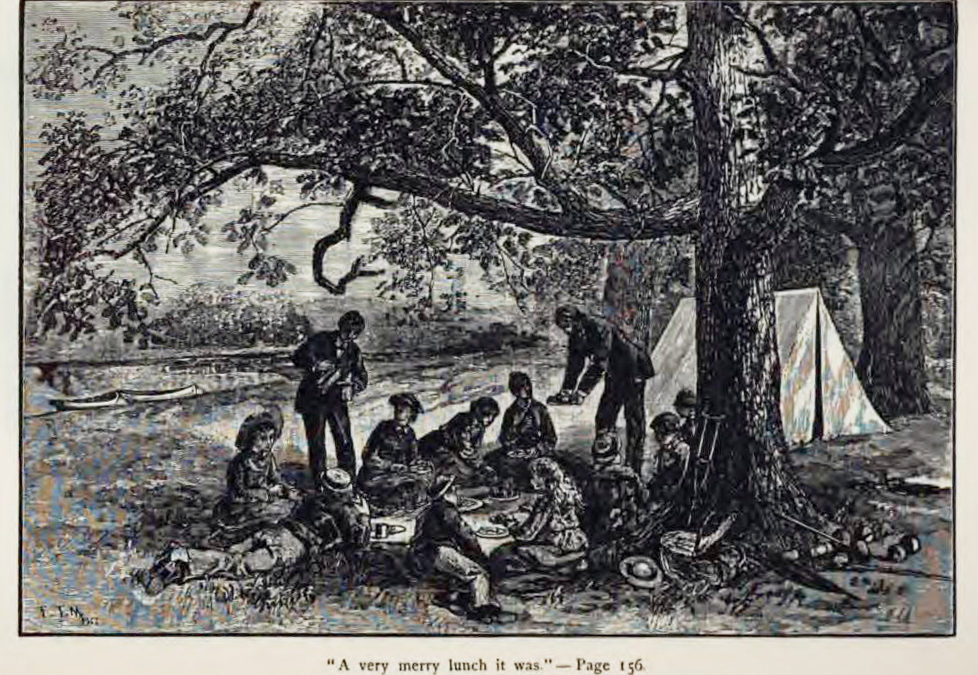 “Sunshine and laughter are good omens for a pleasure party,” Alcott writes in Little Women. And when Laurie writes to Jo to explain his intentions, he promises sunshine and laughter. Dear Jo, What ho! Some English girls and boys are coming to see me...
“Sunshine and laughter are good omens for a pleasure party,” Alcott writes in Little Women. And when Laurie writes to Jo to explain his intentions, he promises sunshine and laughter. Dear Jo, What ho! Some English girls and boys are coming to see me...
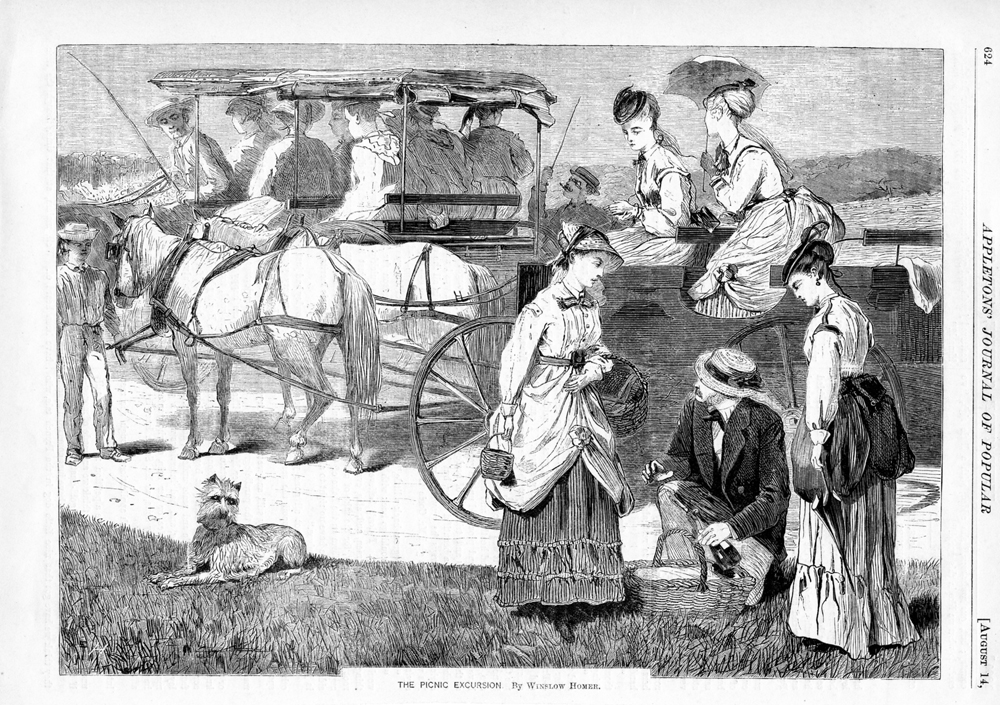 When Appleton’s Journal commissioned Winslow Homer to illustrate a short essay, “Picnic Excursions,” it’s unclear if he ever read the text, partly because he titled his composition The Picnic Excursion. Perhaps he considered that picnics are...
When Appleton’s Journal commissioned Winslow Homer to illustrate a short essay, “Picnic Excursions,” it’s unclear if he ever read the text, partly because he titled his composition The Picnic Excursion. Perhaps he considered that picnics are...
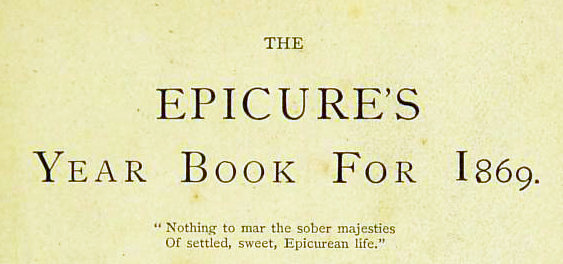 According to Jerrold’s satire “Picnic Reform,” British “Picnic- frequenters” must radically alter their “picnic gastronomy.” Change is accomplished by eliminating the ordinary. “Could anything be more barbarous?”...
According to Jerrold’s satire “Picnic Reform,” British “Picnic- frequenters” must radically alter their “picnic gastronomy.” Change is accomplished by eliminating the ordinary. “Could anything be more barbarous?”...
 James Jacques Joseph Tissot’s La Partie carrée, aka The Foursome, is more sexually suggestive than the English title indicates. The French title Partie Carrée suggests a sexual tryst and alludes to Édouard Manet’s The Luncheon on the Grass (1863)....
James Jacques Joseph Tissot’s La Partie carrée, aka The Foursome, is more sexually suggestive than the English title indicates. The French title Partie Carrée suggests a sexual tryst and alludes to Édouard Manet’s The Luncheon on the Grass (1863)....
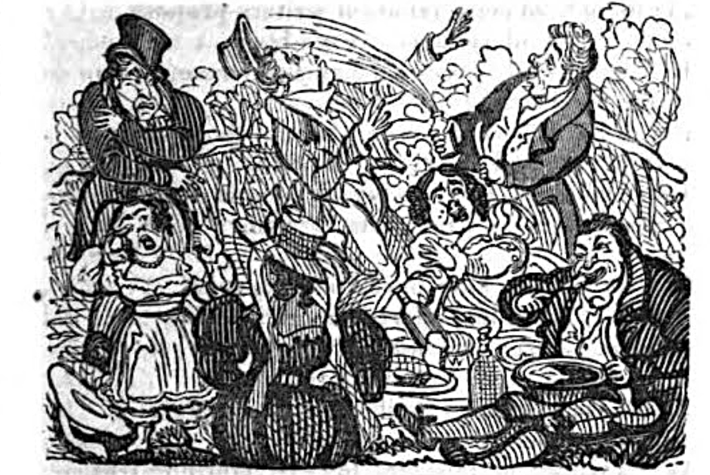 Corny picnic satire was long in vogue in English music before Gilbert and Sullivan’s Thespis, or The Gods Grown Old, premiered in 1871. [Posted elsewhere on PicnicWit.Com] “The Pic-Nic,” an 1829 song (sung to the air of “Here’s the Maiden...
Corny picnic satire was long in vogue in English music before Gilbert and Sullivan’s Thespis, or The Gods Grown Old, premiered in 1871. [Posted elsewhere on PicnicWit.Com] “The Pic-Nic,” an 1829 song (sung to the air of “Here’s the Maiden...
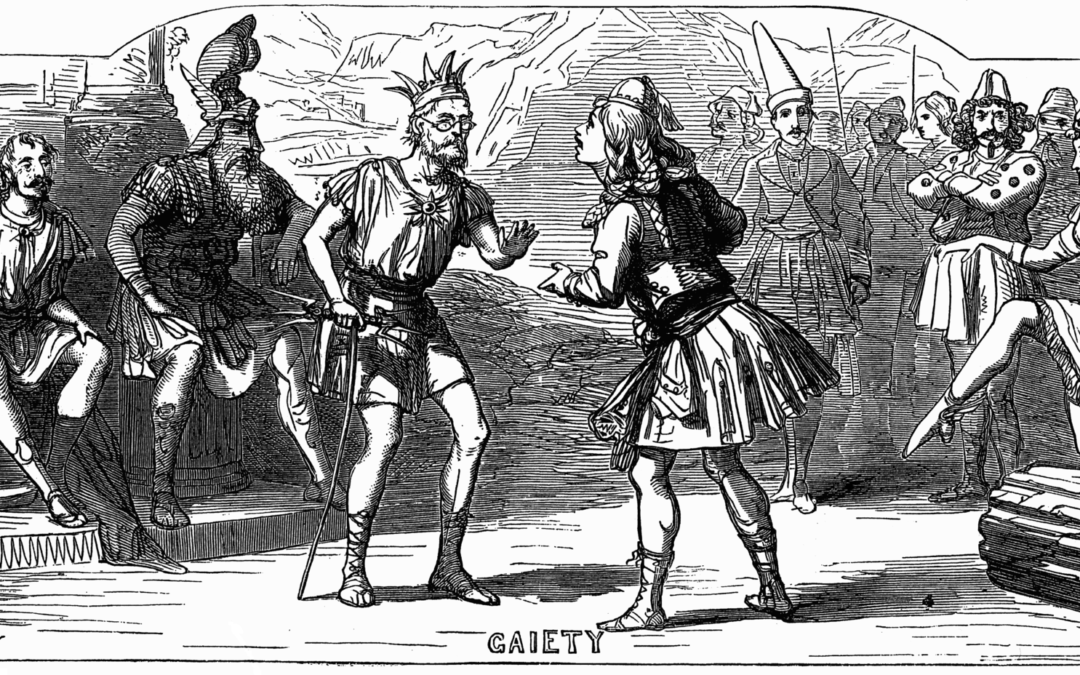 Gilbert and Sullivan’s Thespis or the Gods Grown Old is an early collaboration and not one of their best. It’s a topsy-turvy derivative version of Jacques Offenbach’s operetta Orpheus in the Underworld or Orphée aux envers. Instead of comedy in the...
Gilbert and Sullivan’s Thespis or the Gods Grown Old is an early collaboration and not one of their best. It’s a topsy-turvy derivative version of Jacques Offenbach’s operetta Orpheus in the Underworld or Orphée aux envers. Instead of comedy in the...
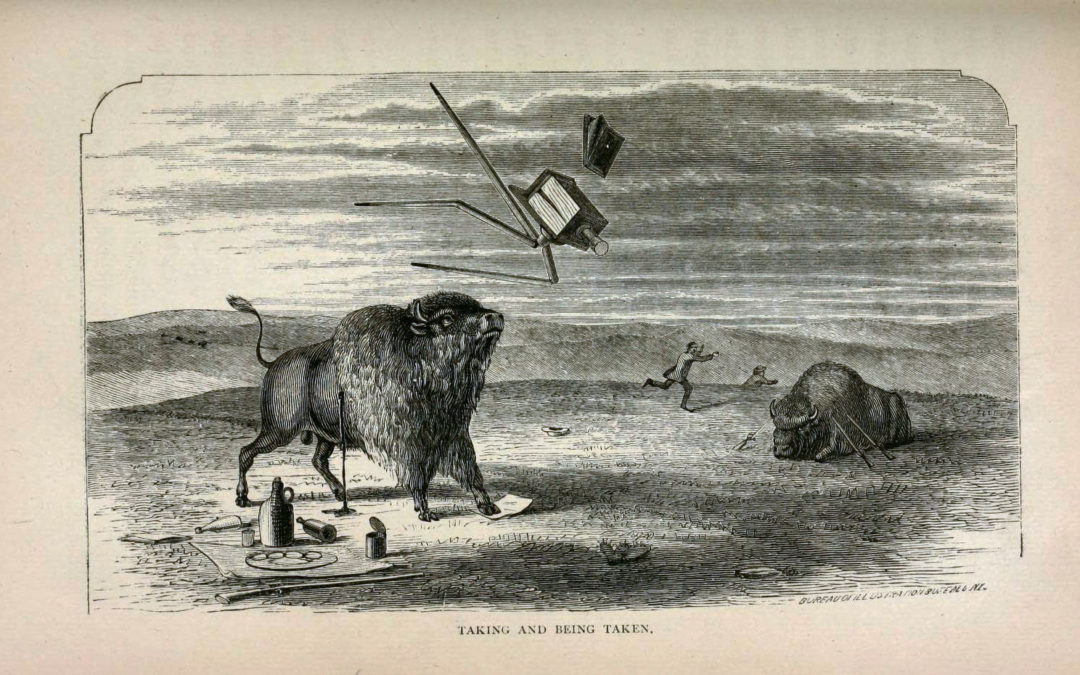 Worrall’s “Taking and Being Taken” depicts a buffalo unsetting a photographer’s picnic. It’s a topsy-turvy moment in which the Buffalo, then being exterminated on the American Great Plains, gets even (momentarily) by disrupting a hapless...
Worrall’s “Taking and Being Taken” depicts a buffalo unsetting a photographer’s picnic. It’s a topsy-turvy moment in which the Buffalo, then being exterminated on the American Great Plains, gets even (momentarily) by disrupting a hapless...
 For London: A Pilgrimage, Doré and Jerrold visited Epsom in 1869 to experience the tumult of Derby-Day— the race, the carnival atmosphere, and picnic luncheons on carriage tops. Unlike William Powell Frith’s The Derby Day, Dore and Jerrold were keen to exploit...
For London: A Pilgrimage, Doré and Jerrold visited Epsom in 1869 to experience the tumult of Derby-Day— the race, the carnival atmosphere, and picnic luncheons on carriage tops. Unlike William Powell Frith’s The Derby Day, Dore and Jerrold were keen to exploit...











